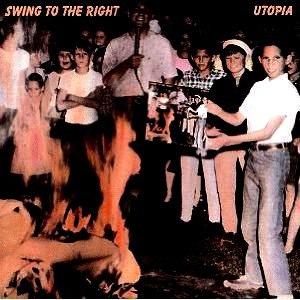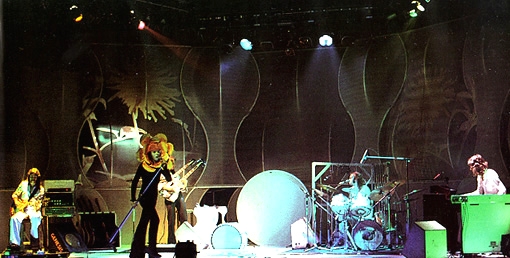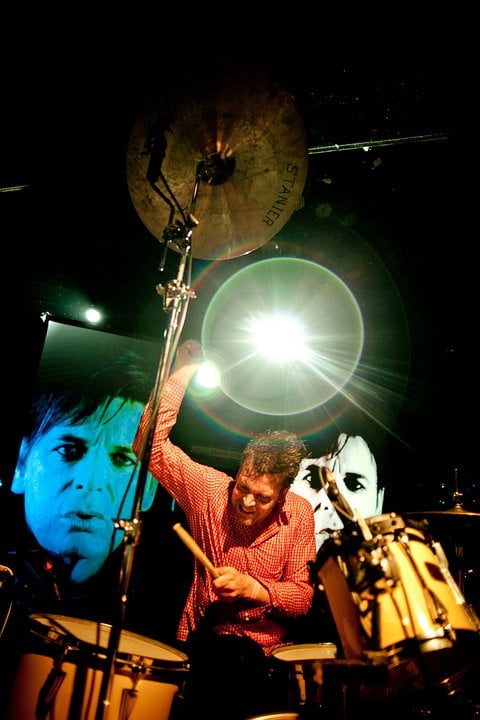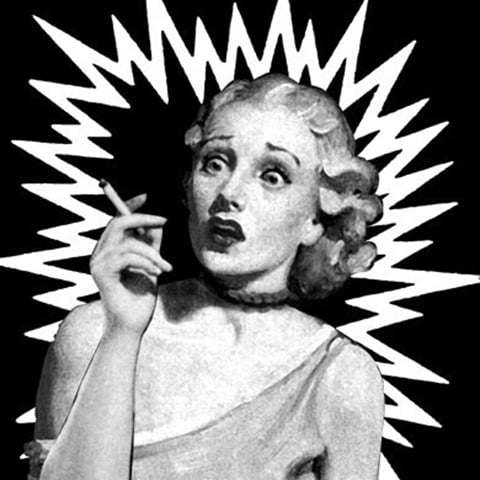/PAlogo_v2.gif) |
|
Post Reply 
|
Page 123> |
| Author | ||||||
RoyFairbank 
Forum Senior Member 

Joined: January 07 2008 Location: Somewhere Status: Offline Points: 1072 |
 Topic: What does AOR mean? - "album oriented rock?" Topic: What does AOR mean? - "album oriented rock?"Posted: May 01 2010 at 13:36 |
|||||
|
On wikipedia it says AOR is a radio format while here it is treated as a description of a genre- Boston, Saga, Toto, Asia, etc.
What am I missing? Sorry for briefness I have to go to WORK right now and THAT STINKS. See you in 6 hours....  edit: one last thing: more examples I think I've seen the reference; styx, Jefferson Starship, starship... etc. Edited by RoyFairbank - May 01 2010 at 13:37 |
||||||
 |
||||||
thellama73 
Collaborator 
Honorary Collaborator Joined: May 29 2006 Location: United States Status: Offline Points: 8368 |
 Posted: May 01 2010 at 13:41 Posted: May 01 2010 at 13:41 |
|||||
|
I am confused by this as well, since the term "album oriented rock" makes me think of bands like Pink Floyd who focused on the album as a whole rather than radio singles.Yet the term AOR is almost always used in conjunction with rather bland seventies rock bands, leaving out the definitive concept albums (isn't a concept album the ultimate example of album oriented rock?)
|
||||||

|
||||||
 |
||||||
Dean 
Special Collaborator 

Retired Admin and Amateur Layabout Joined: May 13 2007 Location: Europe Status: Offline Points: 37575 |
 Posted: May 01 2010 at 13:57 Posted: May 01 2010 at 13:57 |
|||||
|
In the USA it meant Album Oriented Rock radio or Album Oriented Radio (since we didn't have FM-type radio stations in the UK it was usually taken as meaning Adult Oriented Rock here - implying that adults bought albums and kids bought singles).
Obviously any band that got played on AOR radio would be an AOR band.
(In Xover) We don't view it as description of a genre but as a style of mainstream music that would be better described as melodic rock as typified by the bands you listed. The diversity of bands and styles within AOR is too wide to be thought of as a genre as such.
|
||||||
|
What?
|
||||||
 |
||||||
Slartibartfast 
Collaborator 

Honorary Collaborator / In Memoriam Joined: April 29 2006 Location: Atlantais Status: Offline Points: 29625 |
 Posted: May 01 2010 at 14:16 Posted: May 01 2010 at 14:16 |
|||||
|
My experience has been that it was radio stations that didn't exclusively play hit singles.
|
||||||
|
Released date are often when it it impacted you but recorded dates are when it really happened...

|
||||||
 |
||||||
Ivan_Melgar_M 
Special Collaborator 
Honorary Collaborator Joined: April 27 2004 Location: Peru Status: Offline Points: 19535 |
 Posted: May 01 2010 at 15:08 Posted: May 01 2010 at 15:08 |
|||||
|
AOR originally means Album Oriented Radio, and it's the name that early FM used to describe their approach, due to the fact that they had little propaganda, they were able to broadcast complete albums and songs that exceed the time parameters of 2.30 - 3:00 minutes of AM radio. Later the bands that oriented their musical direction towards complete albums instead of the search of the hit single, were called Album Oriented Rock, because this was the music that AORadio played....As a fact, Progressive Rock is the most clear example of real Album Oriented Rock, being that they defied the hit single format. In the late 70's the name became derogatory and was used to describe a group of extremely popular USA bands (mainly) that used the album format but were a hybrid between Pop, Rock and Prog, being Boston the most representative band, In that point the term changed to ADULT Oriented Rock, because this music was listened by Young adults (22 - 30) in opposition to Disco and Punk that was listened by teens mostly...Then this term changed to Adult Contemporary and AOR became almost a genre to define bands as STYX, Boston, Toto, etc. IvánEdited by Ivan_Melgar_M - May 01 2010 at 15:13 |
||||||

|
||||||
 |
||||||
The Runaway 
Forum Senior Member 

Joined: May 28 2009 Location: London Status: Offline Points: 3144 |
 Posted: May 01 2010 at 16:17 Posted: May 01 2010 at 16:17 |
|||||
|
I always thought it meant Adult-Oriented Rock, and the bands were Styx and REO Speedwagon...

|
||||||
 |
||||||
Queen By-Tor 
Special Collaborator 

Honorary Collaborator Joined: September 13 2006 Location: Xanadu Status: Offline Points: 16111 |
 Posted: May 01 2010 at 17:04 Posted: May 01 2010 at 17:04 |
|||||
THIS!!! Come on people... if it meant album-oriented-rock then it would mean this entire website, and I would wonder where all the AOR hating came from. Adult-Oriented-Rock. Inoffensive, Radio friendly, melody heavy music. Eagles Boston Styx Michael Kiske and so on. |
||||||
 |
||||||
Ivan_Melgar_M 
Special Collaborator 
Honorary Collaborator Joined: April 27 2004 Location: Peru Status: Offline Points: 19535 |
 Posted: May 01 2010 at 17:16 Posted: May 01 2010 at 17:16 |
|||||
Like it or not, it means ALBUM ORIENTED RADIO ans ALBUM ORIENTED ROCK
or
Or
and
And yes, Progressive Rock is essentially an AOR genre.
The term evolved to describe a style, but that's not the real meaning.
Iván
Edited by Ivan_Melgar_M - May 01 2010 at 17:20 |
||||||

|
||||||
 |
||||||
Dean 
Special Collaborator 

Retired Admin and Amateur Layabout Joined: May 13 2007 Location: Europe Status: Offline Points: 37575 |
 Posted: May 01 2010 at 17:36 Posted: May 01 2010 at 17:36 |
|||||
Not in every country in the world. As I said, in the UK it can also mean Adult Oriented Rock. Evidently it did where Mike and BlowinFree live too.
|
||||||
|
What?
|
||||||
 |
||||||
Ivan_Melgar_M 
Special Collaborator 
Honorary Collaborator Joined: April 27 2004 Location: Peru Status: Offline Points: 19535 |
 Posted: May 01 2010 at 17:49 Posted: May 01 2010 at 17:49 |
|||||
Dean, as I mentioned in my foirst post, Adult Oriented Rock was also used in the States, but as an inaccurate evolution of the term.
As a fact Album Oriented Radio 9is an official broadcasting term, any mistaken use oof the term is simply inaccurate,
Yes, bands like Styx, Reo Speedwagon, Europe, etc were called AOR for Adult Oriented Rock, but that-s inaccurate.
Iván Edited by Ivan_Melgar_M - May 01 2010 at 17:57 |
||||||

|
||||||
 |
||||||
Dean 
Special Collaborator 

Retired Admin and Amateur Layabout Joined: May 13 2007 Location: Europe Status: Offline Points: 37575 |
 Posted: May 01 2010 at 17:56 Posted: May 01 2010 at 17:56 |
|||||
(we can always go ask Hugues see what he thinks
|
||||||
|
What?
|
||||||
 |
||||||
Ivan_Melgar_M 
Special Collaborator 
Honorary Collaborator Joined: April 27 2004 Location: Peru Status: Offline Points: 19535 |
 Posted: May 01 2010 at 18:02 Posted: May 01 2010 at 18:02 |
|||||
|
Well Dean, I seen a couple British members (Not you) atacking USA Prog as second class, and calling bands as Kansas "Pork Burger", and this doesn't make it correct. The bands of the late 70-s you decribe are of course AOR, because they base their production in the album format, but this bands are only a small part of what AOR means.
AOR is an official term with a meaning, the missuse of it doesn''t make it more valid.
Iván |
||||||

|
||||||
 |
||||||
Icarium 
Forum Senior Member 

VIP Member Joined: March 21 2008 Location: Tigerstaden Status: Offline Points: 34050 |
 Posted: May 01 2010 at 18:12 Posted: May 01 2010 at 18:12 |
|||||
|
Kansas are Progressive rock and done with that
 and i Like STYX but have no albums (please recomend ) Saga is one of my favourtie bands (I only have Chapters Live and it is all I need of them the best live album ever released) Toto is my favourite band über alles, own 11 studio album and know their BIO out and in. Journey and Foreigner is great bands as well and Asia debute album is one of my dessert island albums. and i Like STYX but have no albums (please recomend ) Saga is one of my favourtie bands (I only have Chapters Live and it is all I need of them the best live album ever released) Toto is my favourite band über alles, own 11 studio album and know their BIO out and in. Journey and Foreigner is great bands as well and Asia debute album is one of my dessert island albums.And i prefare Melodic Rock as describiton of the genre much more then AOR |
||||||
 |
||||||
Dean 
Special Collaborator 

Retired Admin and Amateur Layabout Joined: May 13 2007 Location: Europe Status: Offline Points: 37575 |
 Posted: May 01 2010 at 19:09 Posted: May 01 2010 at 19:09 |
|||||
If you don't want this term to enter into the PA vocabulary, then you should really stop perpetuating it.
I haven't described any late 70s bands. In fact I never mentioned the late 70s.
There is no such thing as an "official term" - they are all colloquial - use in another country is not missuse and it is perfectly valid.
|
||||||
|
What?
|
||||||
 |
||||||
Epignosis 
Special Collaborator 

Honorary Collaborator Joined: December 30 2007 Location: Raeford, NC Status: Offline Points: 32477 |
 Posted: May 01 2010 at 19:16 Posted: May 01 2010 at 19:16 |
|||||
|
mmm...pork burger....
 Listening to Kansas now.  |
||||||
 |
||||||
Epignosis 
Special Collaborator 

Honorary Collaborator Joined: December 30 2007 Location: Raeford, NC Status: Offline Points: 32477 |
 Posted: May 01 2010 at 19:18 Posted: May 01 2010 at 19:18 |
|||||
Amen.
Get The Grand Illusion and Pieces of Eight. |
||||||
 |
||||||
thellama73 
Collaborator 
Honorary Collaborator Joined: May 29 2006 Location: United States Status: Offline Points: 8368 |
 Posted: May 01 2010 at 19:29 Posted: May 01 2010 at 19:29 |
|||||
|
I don't know about you guys, but I am fed up with all those pork burger bands! They are just the worst.
|
||||||

|
||||||
 |
||||||
Ivan_Melgar_M 
Special Collaborator 
Honorary Collaborator Joined: April 27 2004 Location: Peru Status: Offline Points: 19535 |
 Posted: May 01 2010 at 20:36 Posted: May 01 2010 at 20:36 |
|||||
|
Hey Dean, I mentioned British member dismissing USA bands, and that had happend lots of times. Only one use Pork Burgers, and honestly thought he was British but never said many members used the term pork burgers,
But there have been many derogatory mentions of bands like Kansas, Styx or even Pavlov's Dog as Pomp Rock.
Now the term AOR is really official, it's used in broadcasting, it's even taught in Broadcasting or Communication programs, so if it's taken and changed the meaning, is a missuse IMO.
I would add Crystal Ball and even Cornerstone if it wasn't for Babe, becaiuse this album has two of my favourite tracks, "Boat on a River" and "Lights"
And if ready for less popular but more Prog oriented stuff, STYXX II and The Serpent is Rising.
Iván
Edited by Ivan_Melgar_M - May 01 2010 at 20:37 |
||||||

|
||||||
 |
||||||
RoyFairbank 
Forum Senior Member 

Joined: January 07 2008 Location: Somewhere Status: Offline Points: 1072 |
 Posted: May 01 2010 at 20:51 Posted: May 01 2010 at 20:51 |
|||||
|
I was saying to my father,
"oh yeah, Boston, Starship, they were all Adult Oriented Rock, everybody was doing it" "well" he said, exasperated, "it wasn't called that THEN. Now only adults listen to it - when I was young everybody listened to it" So this made me look at the unhelpful wikipedia article but is it true that Adult Oriented Rock as meaning melodic sort of weak pop/rock with a certain polished heavyiness (said bands) developed only AFTER these bands were long gone from the scene? Edited by RoyFairbank - May 01 2010 at 21:40 |
||||||
 |
||||||
thellama73 
Collaborator 
Honorary Collaborator Joined: May 29 2006 Location: United States Status: Offline Points: 8368 |
 Posted: May 01 2010 at 21:06 Posted: May 01 2010 at 21:06 |
|||||
|
Starcraft? I didn't know Blizzard entertainment was around back then.
|
||||||

|
||||||
 |
||||||
Post Reply 
|
Page 123> |
| Forum Jump | Forum Permissions  You cannot post new topics in this forum You cannot reply to topics in this forum You cannot delete your posts in this forum You cannot edit your posts in this forum You cannot create polls in this forum You cannot vote in polls in this forum |